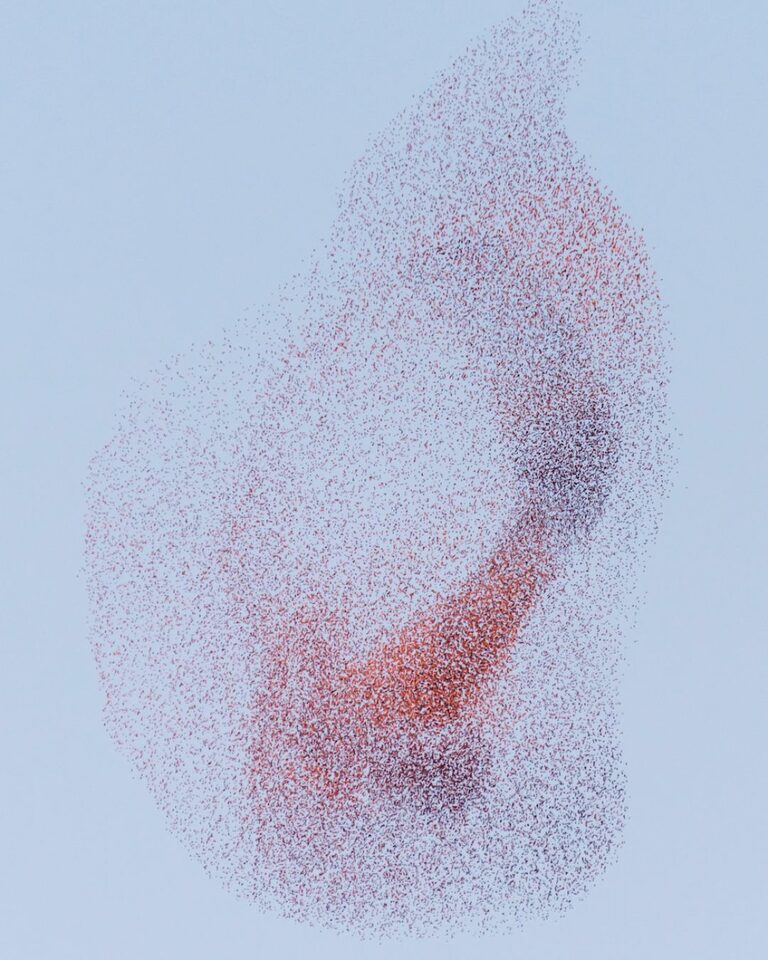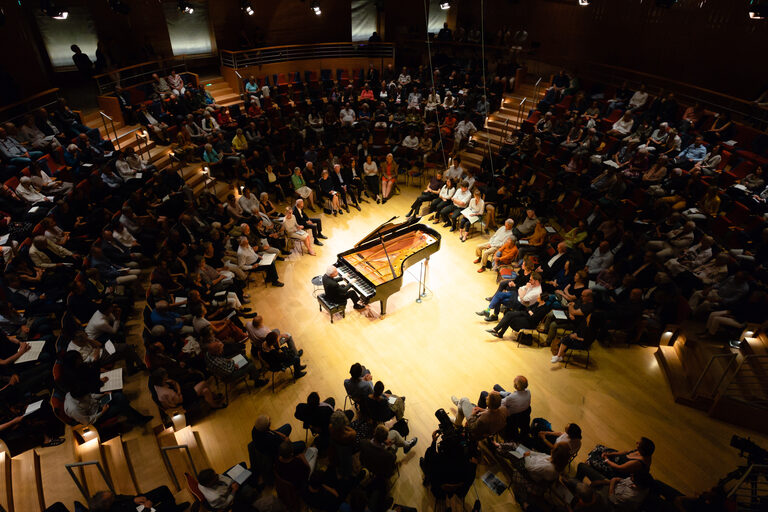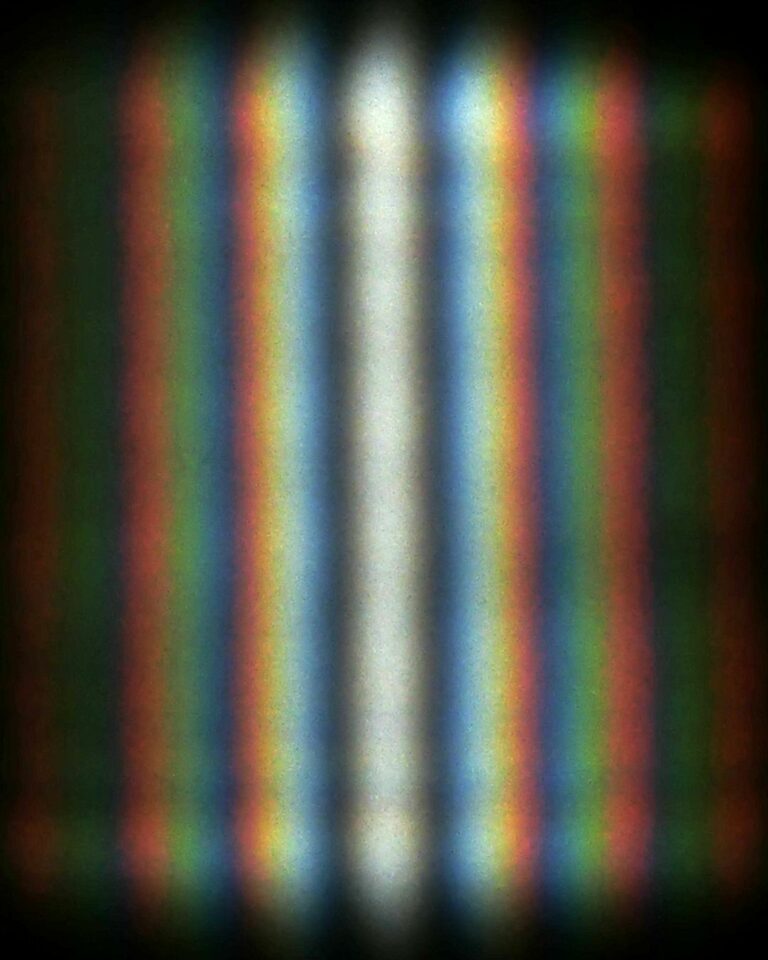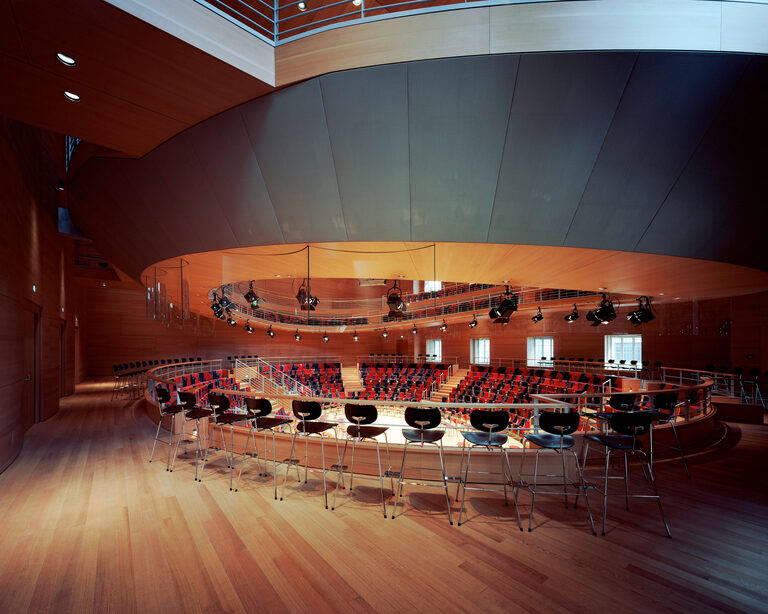
MUSIC FOR THE THINKING EAR
Kirsten Dawes, Artistic Director
I remember when I first discovered the rush of joy that comes with understanding a complex text. I was a third-language student of German Literature in a class on Critical Theory at the University of Cape Town and the essay was required reading. I was in way over my head, and when I open the book now, I can see my own translations of individual words carefully traced into the margins. I remember how sharpening my pencil to write them made me feel slightly less overwhelmed by this beautiful thing that I was trying to grasp.
In cultures across the world, songs have always been part of how we communicate our experience. They contain our histories.
The text was Walter Benjamin’s Über den Begriff der Geschichte (On the Concept of History), and those tiny translations gave me a place to start. Making my way past them and into the rhythms of Benjamin’s beautiful sentences, I was surprised to find myself enthralled by the idea at its heart. The thought that history is not in fact linear and that the truth is closer to a tangled web of experience than a logical series of events, has followed me ever since.
It is almost as hard to talk about music in these terms as it is to describe the wonders of an egg to someone who does not cook. But I think our songs are the key.
In cultures across the world, songs have always been part of how we communicate our experience. They contain our histories. Each might seem simple in its own right, but no one is described by a single song. We collect them as we go—some of them seem to fit together and others do not, but they exist alongside each other and reflect different parts of our existence. We meet other people along the way and take pieces of their songs or pass on parts of our own. What seemed linear becomes convoluted, but in doing so it becomes more truthful.
I have always felt a little sad that we do not get to understand eternity like the all-seeing angel in Walter Benjamin’s essay, but I might have been wrong. Perhaps, if we use our music like I used my pencil, it will help us find the way. I like to think that if we start by following the tracings of individual melodies, they will coax us into their wild tangle of concurrent truths. Taking on the multiplicity of our common experience might feel daunting, but like singing, it is natural, it is beautiful, and it is essentially human.
YOUR VISIT
Plan your visit to the Pierre Boulez Saal. We look forward to welcoming you!
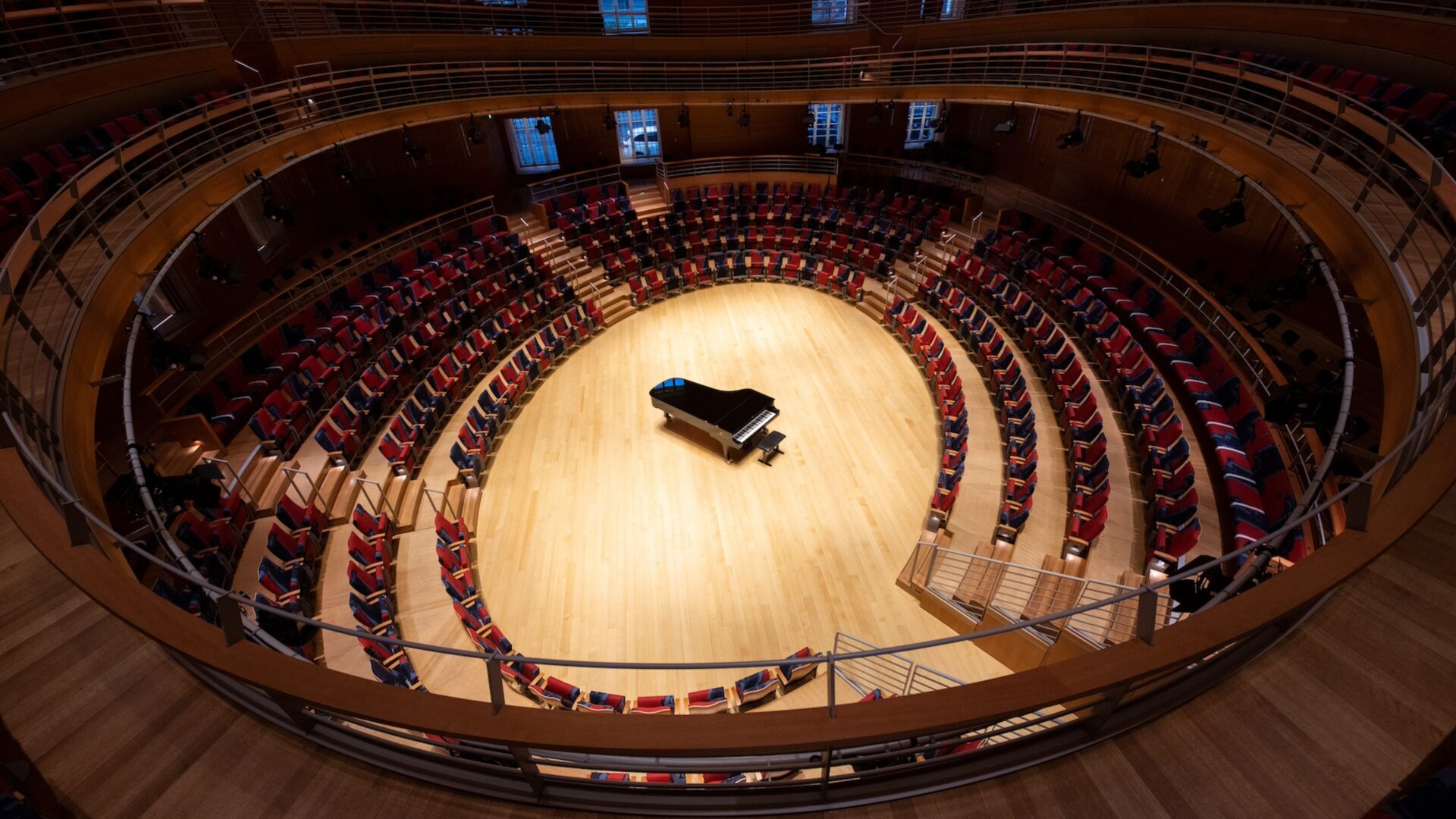
How To Get There
Pierre Boulez Saal
Barenboim-Said Akademie
Französische Straße 33d
10117 Berlin
_____
Public Transport
U-Bahn U2 Hausvogteiplatz, U5 Museumsinsel, U6 Unter den Linden
S-Bahn S / U Friedrichstraße
Tram M1, 12 Mitte / Am Kupfergraben
Bus 147 Werderscher Markt; 100, 300, N5 Staatsoper
Bicycle
Bicycle racks are available on the street “Hinter der Katholischen Kirche.”
Car
Q-PARK parking garage Unter den Linden / Staatsoper
Bebelplatz 2
10117 Berlin
Theater rate (5.30 pm – 11.30 pm, paid in advance): €10
Please note there is a construction site across from the hall on Französische Straße. The street is narrowed, and cars or taxis are not allowed to stop in front of the Pierre Boulez Saal entrance.
Opening Hours
Box Office
Monday to Friday 2 pm to 6 pm
Closed on weekends and holidays
On performance days, the box office opens one hour prior to an event on weekdays and two hours on Saturdays, Sundays, and holidays.
Papagena Call Center
Ticket hotline +49 30 4799 7411
Monday to Saturday 9am to 8pm
Sunday and public holidays 2pm to 8pm
Food & Drinks
Casalot Catering welcomes Pierre Boulez Saal visitors before and after concerts, serving a variety of dishes of Arab cuisine.
On concert nights, the bar opens one hour before the start of an event and remains open after the performance. You may also place pre-orders for intermission right at the counter.
More informantion on our catering can be found here.
Coat Check
Small bags up to a maximum size of A4 (21x30 cm) and jackets may be taken into the concert hall. Luggage, helmets, large umbrellas, and other bulky items must be stored at the coat check.
The coat check is free and located behind the staircase in the foyer, on the left-hand side.
Accessibility
To book wheelchair-accessible seating, other seats for visitors with disabilities, or companion seats, please contact us directly.
+49 30 4799 7411
tickets@boulezsaal.de
All wheelchair seats are accessible by elevator. All visitors, including patrons using a wheelchair, will enter the Pierre Boulez Saal through the main entrance. Tickets will be checked at the hall doors.
In order to make access as easy as possible, we kindly ask that you inform us of your requirements when booking your tickets.
Restrooms for visitors with disabilities are located in the basement and on the balcony level and are accessible by elevator.
Four parking spaces for visitors with disabilities are available on the street Hinter der Katholischen Kirche.
